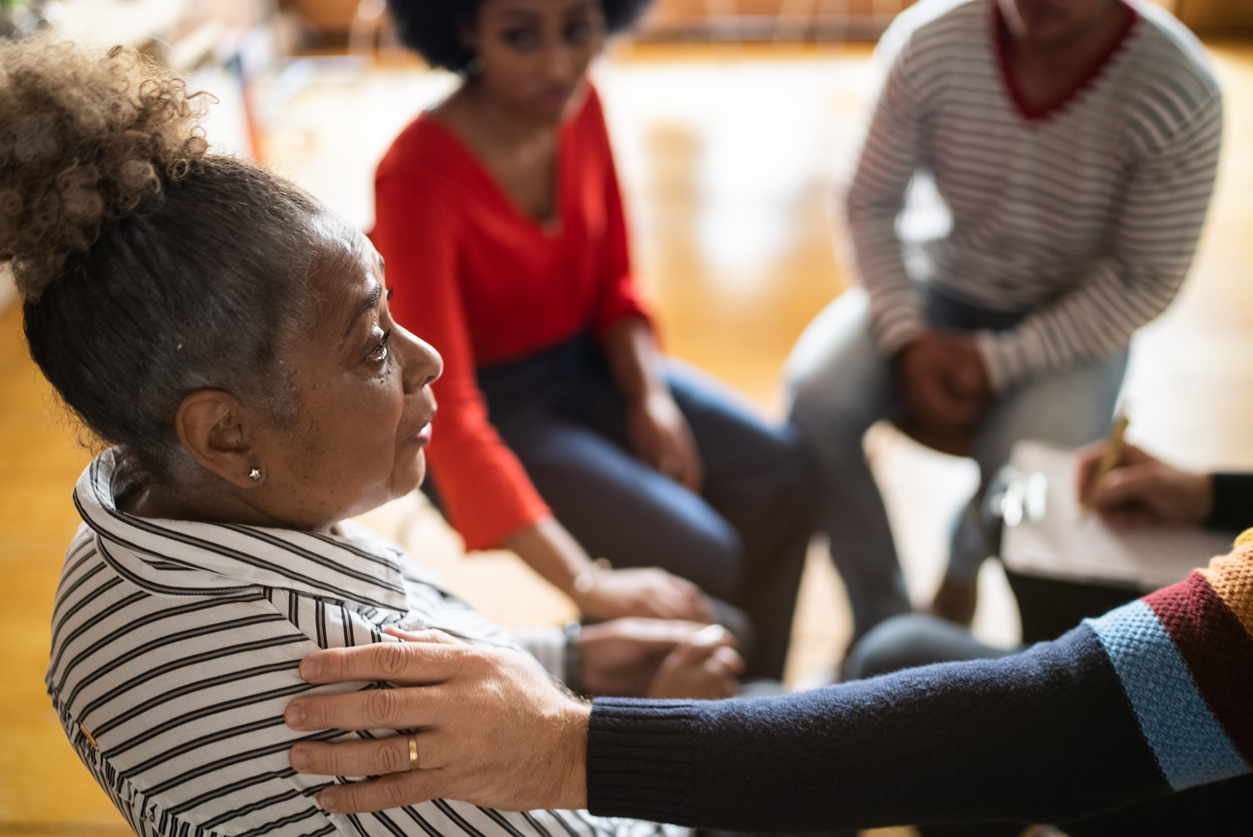
Peer support groups are a great way to meet other kinship carers, share your experiences and exchange advice. Find your nearest group.
Meet Levette
My name is Levette. I’m 68 years old and I’m a kinship carer to 3 of my grandchildren. I became a kinship carer when my daughter suddenly passed away in 2013. She left the children to me to care for.
My daughter fell ill in 2011 and it was during this time that I began to look after her while she was going through chemotherapy, as well as her children. At the time, I was working full-time at a local authority in the HR team. I was able to work remotely and this meant sometimes working on my laptop from the hospital.
When she died, the children were 12, 8 and 4 years old. I made the decision to stop working, because it became just too demanding staying in work while caring for them as a single kinship carer. I had to give up my dream job as a talent consultant and my retirement dream of becoming a foster carer. This meant I had no income and all I was entitled to was income support and child support, which does not get you very far when you’re looking after 3 children. I also fell into debt because I’d had to run 2 households for 15 months and my daughter had no life insurance. I’m still paying for storage to this very day.
When my daughter passed away all I could focus on was keeping the children emotionally stable. Losing their mother was a traumatic experience for them and I wanted to make sure they were able to grieve. I wasn’t able to find time to grieve myself. I simply relied on my faith in God.
You have to do everything to not make loss turn into bitterness. I have always talked about my daughter with my grandchildren. I don’t let them keep things in. I tell them that she’s here with us and that she’s here in our hearts. We have found this very healing.
When I became a kinship carer, I quickly learned that local authority support was very much dependent on the borough you lived in, as each borough did things differently. We lived in Walthamstow in London and we were not able to access any financial or emotional support, however one of my friends lived in Hackney and she was able to access financial support, housing and support from social workers for the entire process.
I believe that all kinship carers who step up to raise children when their parents no longer can should get the same financial, emotional and practical support as foster carers. Whatever the situation with the children, it should be evaluated in the same way. I believe it is better if the children can stay with family members than with strangers. Kinship care is so important. My daughter knew that I would bring her children up best. She trusted me.
When I became a kinship carer, I looked online for support and I phoned Kinship’s advice line and they gave me some information. Then a couple of years ago I received an email from Kinship asking if I wanted to join a support group for kinship carers and attend some online training workshops. I signed up to everything that I felt was relevant to me or that I thought would be useful to share with people who I knew.
I am currently in the process of setting up support groups, both in-person and online, with another kinship carer, because there isn’t one in my local area of East London. I’m really into anything crafty like baking, arts, crocheting, knitting, weaving, paper crafting, rock painting, embroidery etc. For the in-person group, we want people to be able to bring along any multi-craft project they’re working on and we can share experiences and skills over coffee/tea. Crafting is an outlet for me to relax and be creative. Smita, Kinship’s support group volunteer coordinator, is helping me set this all up and promote the group.
I have learned so much over the last 10 years from being a kinship carer and being part of a support group. It’s really helpful to be able to empathise with others in a supportive group because you know somebody else is going through something similar. Kinship carers don’t want to be told they’re doing a good job. We want practical help like support groups.
To me it’s very important to facilitate a support group and be able to support others, as you can always share something and draw on your own experience to help somebody. To one person it may seem trivial but to another it’s not. We never know who might need what we have. There’s no shame in giving or asking for help. However I can help, I am always up for it.
Sign up for emails to keep up to date with the information that’s important to you, from support and advice for kinship carers, to our latest news, events and campaigns.